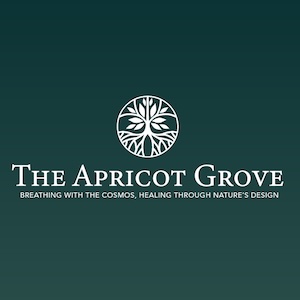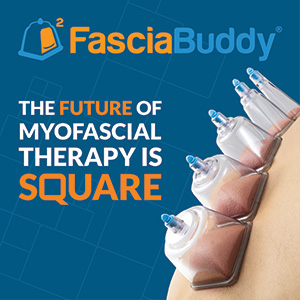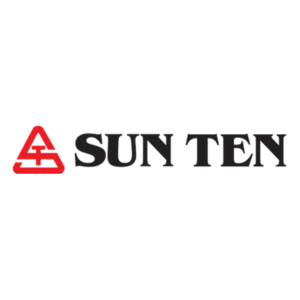I recently got to thinking about Wei qi, especially as we are moving into the dark of the year in the northern hemisphere, and I realized that I hear discussions about wei qi, and how we should attend to it, or nourish it. Often enough, perhaps too often, we equate wei qi with the immune system. And think about strength, rather than balance. What’s more, the commonly used formulas that are famous for ‘stabilizing or strengthening the exterior” are frequently prescribed without any kind of actual differential diagnosis. Concerns about effectiveness and maybe even safety naturally arise.
In this conversation with Ann Cecil-Sterman, Laurie Ayers and Master Wu, we bring together the perspectives of an acupuncturist, an herbalist, and a qi gong practitioner. The intention here is to see how experienced clinicians from these three disciplines within East Asian consider the Wei and its use in clinical work.
Listen in to this discussion of the Wei qi, its source, cultivation, and connections with the yang, zheng, fluids and Heart.
In This Conversation We Discuss:
- The importance of regulating the heat at the exterior of the body
- Wei as a qi that is involved with the exterior and smooth muscle
- There is no truth to nail down
- Yang sheng and wei sheng, cultivating life and cleanliness are similar in that they both are concerned with protecting life, but yang sheng builds the inner resources in a different way
- There is just one qi, but it has different functions
- A proper function taiyang is involved with the circulation of warm blood
- From a functional perspective, blood is more yang and qi is more yin.
- You can think of blood as liquid yang
- It’s not about the knowledge you have, but about the intention you apply
- Wei qi as coming from Kidney yang, and exiting through the spine at DU4 and DU14
- Wei qi does not have intelligence, it reacts, and serves to move the being forward in time
- Master Wu’s thoughts on strengthening your own wei qi
- How the wei and the zheng qi are aspects of the same thing and both important in protecting life
- Heart as the source of yang, and that fire is transferred through the Small Intestine to the Kidney
- Gui Zhi Tang can be seen as a formula that tonifies the Heart Fire
- All intention is Heart centered, unless interfered with by the mind
- The meridian is not the same as the organ
- The importance of food based fluids
Practice like nothing else matters because everything does
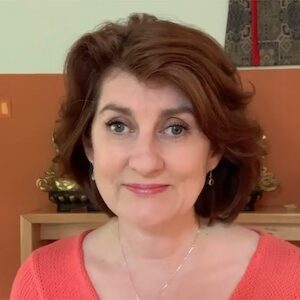 Ann Cecil-Sterman is the author of three best-selling books, the Art of Pulse Diagnosis, Tongue Diagnosis and Advanced Acupuncture: A Clinic Manual, acclaimed as the first and only text with complete protocols for all the channels of acupuncture. Ann’s aim as a teacher is to play a significant role in helping to return acupuncture to its inspiring classical roots, not just to the Han Dynasty writings of the Complement Channels (sinew, luo, divergent and eight extraordinary), but even to earlier understandings. Ann offers online courses in complex practices and hosts a warm, twice-monthly international online chat where practitioners present cases.
Ann Cecil-Sterman is the author of three best-selling books, the Art of Pulse Diagnosis, Tongue Diagnosis and Advanced Acupuncture: A Clinic Manual, acclaimed as the first and only text with complete protocols for all the channels of acupuncture. Ann’s aim as a teacher is to play a significant role in helping to return acupuncture to its inspiring classical roots, not just to the Han Dynasty writings of the Complement Channels (sinew, luo, divergent and eight extraordinary), but even to earlier understandings. Ann offers online courses in complex practices and hosts a warm, twice-monthly international online chat where practitioners present cases.
She graduated from the acupuncture school founded by Dr Jeffrey Yuen in New York. During and after her time there she received direct transmissions from him in acupuncture, pulse diagnosis, history, food, herbs, essential oils, stones, qigong and philosophy. In her busy Manhattan practice which she loves, she specializes in seemingly intractable conditions. www.anncecilsterman.com
You can find Ann on Facebook and here’s a link to her teaching offerings
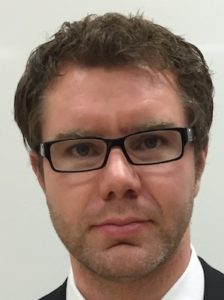 Laurie Ayers began his studies in Chinese medicine at age 19 at the London College of Traditional Acupuncture completing an undergraduate diploma in tui na, a BSc (hons) degree in acupuncture, and a postgraduate diploma in oriental herbal medicine. Towards the end of his studies in 2007 Laurie met Dr Arnaud Versluys, and has continued to study the Tian-Zeng lineage of Shang Han Za Bing Lun practice with Dr Versluys since that time. Laurie began teaching the Tian-Zeng lineage of herbal medicine with the Institute of Classics in East Asian Medicine (ICEAM) in 2010, he has lectured and provided clinical tuition in numerous locations around the world including the UK, Netherlands, Germany, Sweden, Poland, the US and Australia.
Laurie Ayers began his studies in Chinese medicine at age 19 at the London College of Traditional Acupuncture completing an undergraduate diploma in tui na, a BSc (hons) degree in acupuncture, and a postgraduate diploma in oriental herbal medicine. Towards the end of his studies in 2007 Laurie met Dr Arnaud Versluys, and has continued to study the Tian-Zeng lineage of Shang Han Za Bing Lun practice with Dr Versluys since that time. Laurie began teaching the Tian-Zeng lineage of herbal medicine with the Institute of Classics in East Asian Medicine (ICEAM) in 2010, he has lectured and provided clinical tuition in numerous locations around the world including the UK, Netherlands, Germany, Sweden, Poland, the US and Australia.
Laurie has been in clinical practice since 2007, in 2012 he stopped practicing tui na and acupuncture to focus his attentions purely on the practice of herbal medicine. Laurie practices in London, UK, and although he maintains a general practice treating people with a wide range of conditions, he specialises in the treatment of people with autoimmune diseases.
Jing 精, Qi 氣, and Shen 神 are the best medicines in the world! They reside within each of our bodies. Daily traditional Qigong practice will allow you to access these medicines for self healing and enhance your skill while working with others.
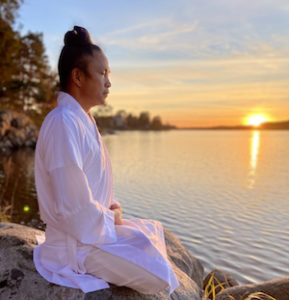
Zhongxian Wu
I was born in a traditional fishing village on China’s eastern shore, where the sunlight first touches the mainland. At an early age I committed myself to the pursuit of the ancient arts of internal cultivation: Qigong, Taiji, internal martial arts, Chinese medicine,Yijing science, FengShui, Chinese astrology and cosmology, Chinese calligraphy, and traditional GuQin music. Since 1988, I have worked with tens of thousands of Qi-friends throughout China, North America and Europe.
For decades I have been offering unique and professionally designed courses and training programs in China’s ancient life sciences for students of all levels. I work with clients suffering from acute and/or chronic illness via external Qi-healing sessions, offer individual training in the Daoist arts, and personal/business consultation from Yijing, Fengshui or Chinese astrology perspectives. I have authored many published works – over 60 articles and 15 books (5 in Chinese) – on Chinese wisdom traditions.











